Description
Inclusive public engagement with research and innovation remains a critical pillar in enhancing the uptake and impact
of research and progress towards a development agenda. Currently, there has been increasing acknowledgement
that scientific evidence and innovation need to find their place in discourses of decision-making, with a wide
range of stakeholders involved. (Chataway et al., 2019).
Current awareness of citizens on public engagement has increased. While there have been efforts to embrace public engagement and participation in science, inherent societal inequalities have rendered the inclusivity of these efforts elusive. Pertinent aspects as gender transformation and inclusivity remain barriers to the effectiveness of the efforts, with women remaining at the periphery of participation in knowledge production and access for use. Gender parity on the continent is particularly low in STI leadership, decision-making and senior research positions. Other dimensions of exclusion, such as low scientific literacy and the language barrier, also compromise the effectiveness of public engagement. There has been growing awareness that addressing inclusivity in public engagement is crucial to ensuring that the knowledge that knowledge producers and SGCs invest in, actually gets to different sectors of the population and has greater potential for impact. This policy brief provides insights into some of the critical concerns and how to address them.

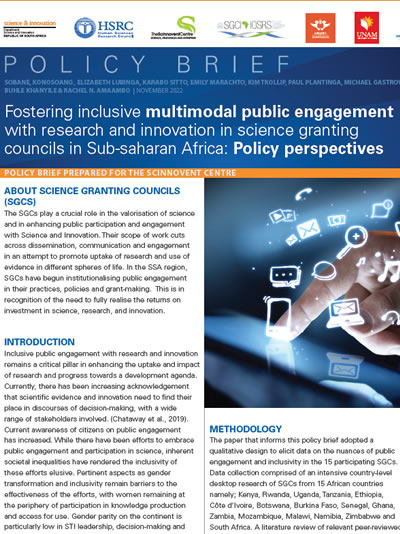
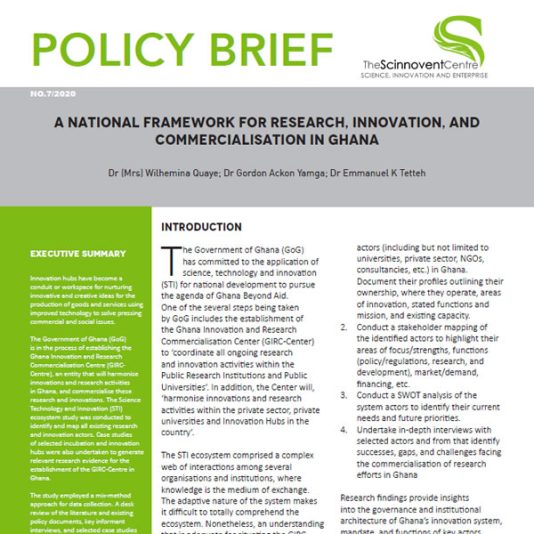
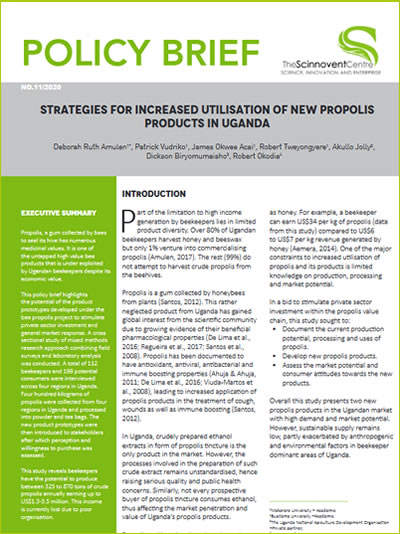
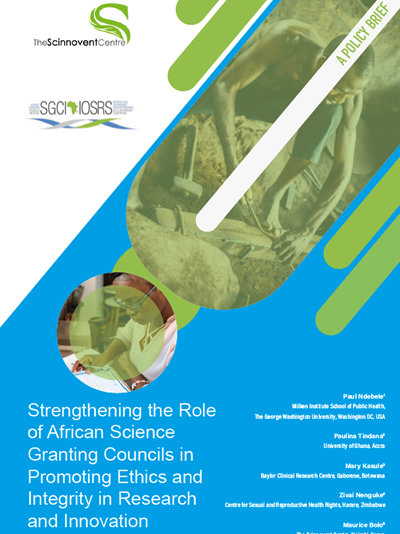
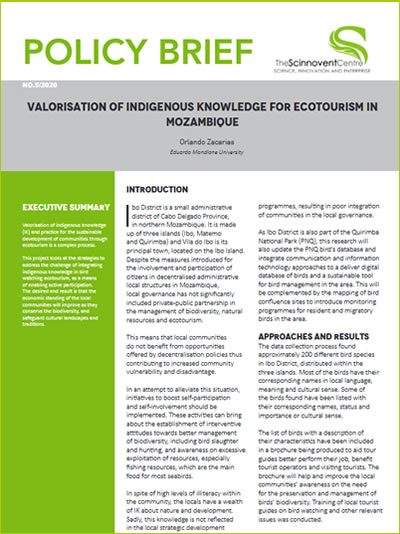

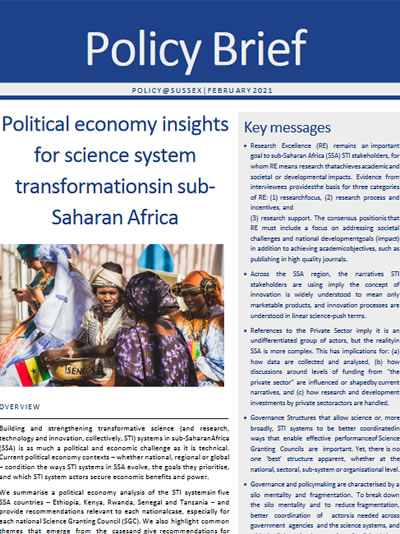
Reviews
There are no reviews yet.